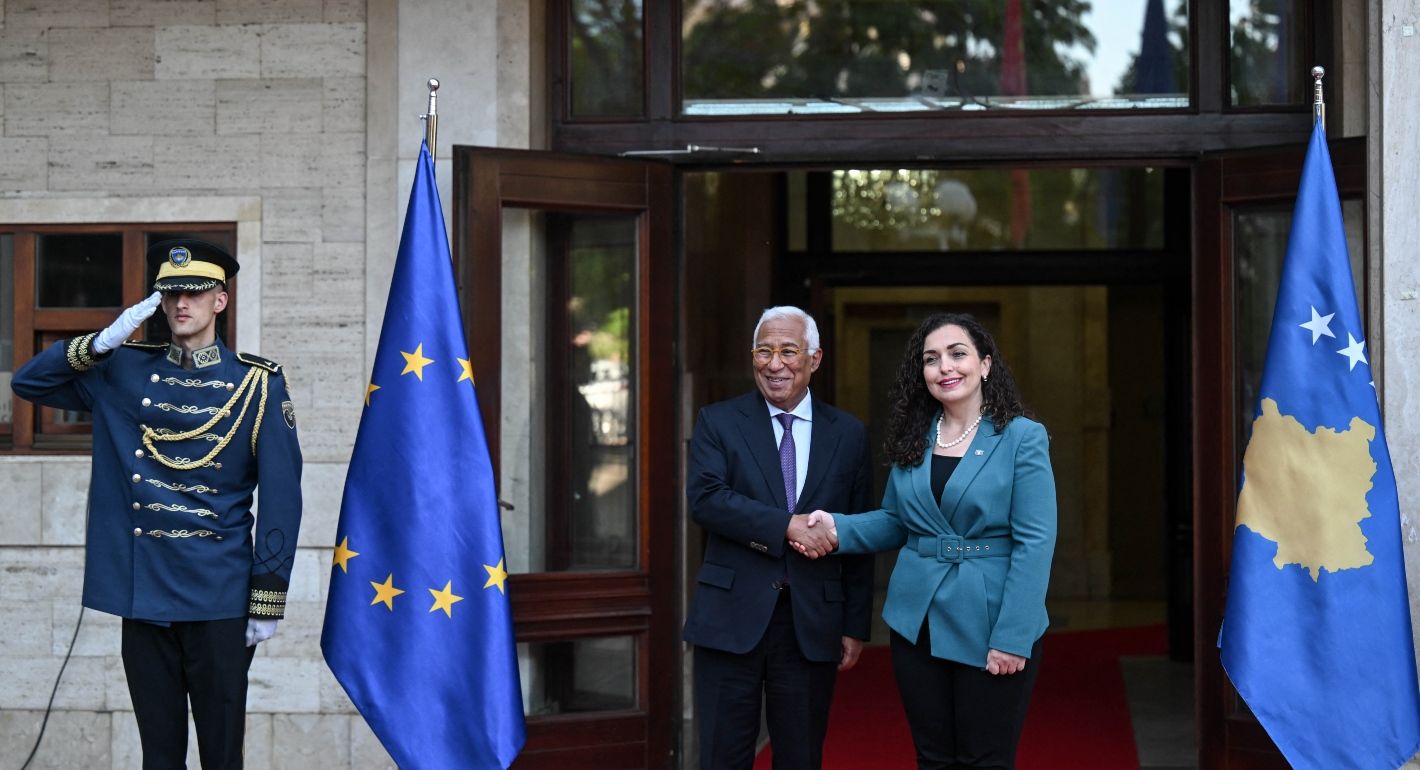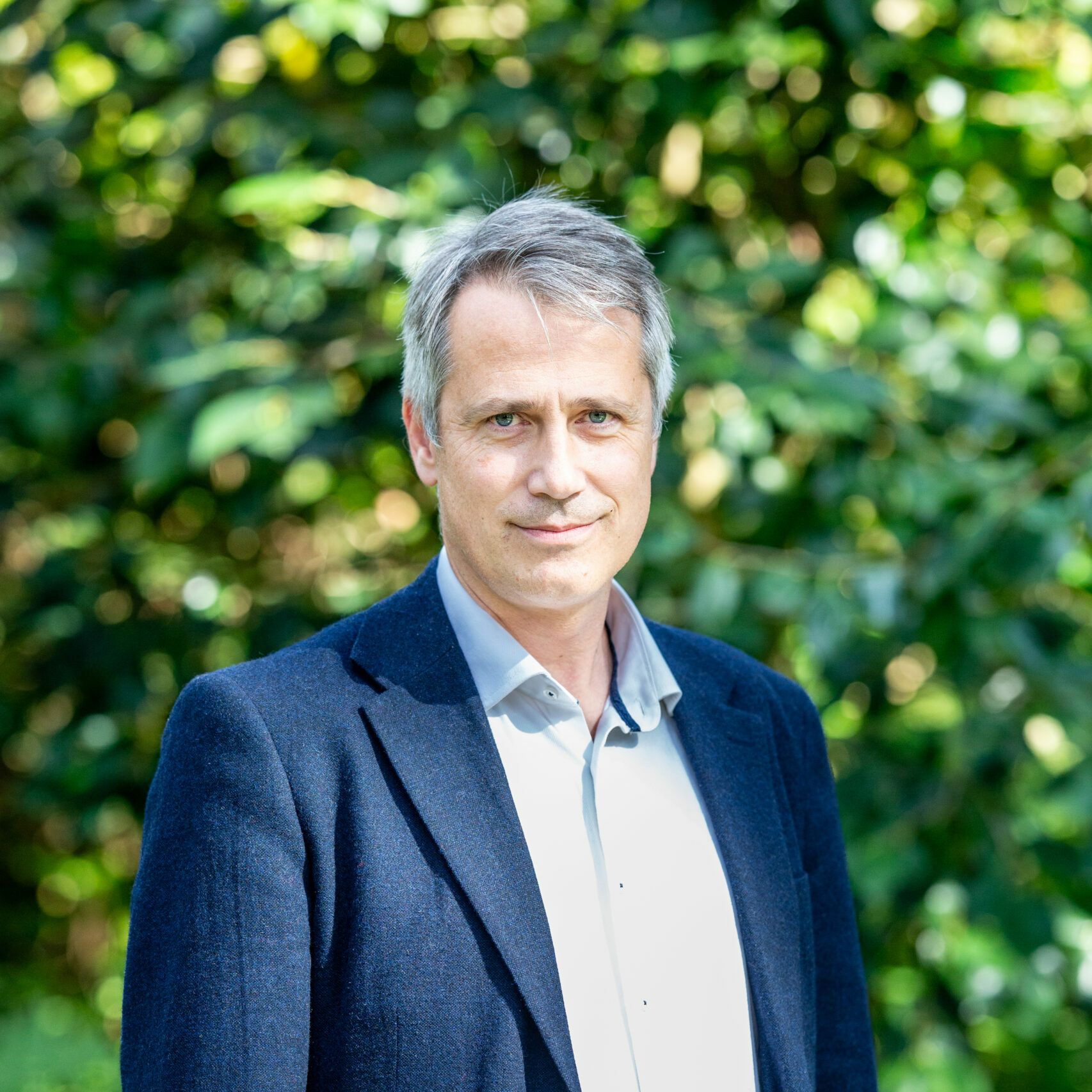Arms supplies from Russia to Iran will not only continue, but could grow significantly if Russia gets the opportunity.
Nikita Smagin

Source: Getty
Kosovo continues to face significant obstacles on its path to EU membership. To move forward, Prishtina must revive its dialogue with Belgrade, while the union should provide a clear road map for easing its punitive measures against the country.
Kosovo has lately ceased to generate angst-ridden headlines in international media. The situation in and around the Western Balkan country appears to be stable. After a violent standoff in the northern village of Banjska in September 2023, tensions with Serbia have gone down a notch or two. In recent weeks, Kosovo was recognized as an independent state by two further countries: Kenya and Sudan. And Kosovo’s economy is growing. According to the International Monetary Fund, the country’s GDP expanded by 4 percent in 2023 and 4.4 percent in 2024.
Domestic politics appear to be in a decent shape, too. Unprecedentedly, the last parliament served a full term. At a time of authoritarian drift in the region, Kosovar politics remain democratic and highly competitive. The governing Vetëvendosje (VV) party won the February 2025 parliamentary election but lost seats to the opposition and fell short of a majority.
Yet, there is no room for complacency, as Kosovo continues to face significant challenges. Its road to EU membership is effectively blocked. Before Prishtina moves forward, Brussels would like to see some initial progress on the creation by Kosovo of the Association of Serb Municipalities (ASM), a planned body that would group Serb-majority entities and grant them some level of self-government. But dialogue with Serbia has ground to a halt. Full normalization of ties and Belgrade’s de facto recognition of Kosovo remain elusive.
In the meantime, uncertainty hovers over politics in Prishtina. As a result of the inconclusive election, neither VV nor its rivals in the divided opposition might be in a position to form a government that is willing or able to engage with the Serb community. The dramatic shift in U.S. foreign policy and the resultant discord in the Western alliance are exacerbating geopolitical risks for Kosovo and the region.
The current inertia in Kosovo’s relations with the EU is detrimental to all parties. To break the logjam, the EU has to act swiftly and decisively. The European Commission should take a more assertive approach toward the EU member states with regard to a gradual lifting of the punitive measures imposed on Prishtina in 2023. The commission should also take steps that could contribute to granting Kosovo candidate country status in the near future.
For its part, the next government in Prishtina should move forward with initial steps on establishing the ASM to regain confidence in Brussels. The government should also seize the economic opportunities offered by the EU’s Growth Plan for the Western Balkans to catch up with the rest of the region. Even if forming a coalition proves impossible, parties in the new parliament could unite around a shared European agenda. Kosovo should explore bilateral security partnerships with key European countries, including the UK, to underwrite regional stability at a time when a U.S. pullout might be in the cards.
Kosovo’s domestic scene remains fragmented. While Prime Minister Albin Kurti and his VV continue to enjoy substantial support, their appeal is receding. The general election on February 9, 2025—the sixth in the country’s postindependence history—yielded an inconclusive result (see table 1).
A workable majority of sixty-one in the 120-seat legislature, the Assembly, is still not in sight, although various scenarios could emerge.
First, VV’s forty-eight members of parliament (MPs) could form a coalition with deputies from ethnic minorities, including Serb representative Nenad Rašić. However, this bloc would still be three MPs short of a majority.
An alternative coalition, built around the opposition Democratic Party of Kosovo (PDK), led by Memli Krasniqi, and the Democratic League of Kosovo (LDK), is possible in principle. This coalition would have fifty-two MPs and could rely on sufficient support among twenty seats from ethnic minorities. PDK might also obtain support from the Serb List (SL), a Belgrade-backed party that won a large majority of ethnic Serb votes. However, negotiations are hobbled by LDK’s insistence on nominating the prime minister. On top of that, the party is riven by internal disagreements.
A third option, a broad alliance across the political spectrum, might be desirable but is not realistic. The opposition regards Kurti as a divisive figure and a liability in Kosovo’s relations with the West.
A fourth possibility is a snap election if the newly elected Assembly either cannot agree on a parliamentary speaker or cannot form a workable majority that can pass legislation.
If the parties can elect a speaker and deputy speakers, it would be an early sign that they might be able to hammer out a compromise on a coalition. But all attempts so far have failed.
Shaping the calculations of VV and its rivals are the October 2025 local elections and the parliament’s presidential vote in February or March 2026 before President Vjosa Osmani’s term ends. Failure by the parliament to elect a head of state—a likely scenario, given the absence of a clear majority in the Assembly—would trigger an early parliamentary election in spring 2026. The next administration’s potentially short term in office is a reason why Kosovo’s parties are keeping their options open. It is possible that the opposition, despite its assurances that it is ready to take the helm, would prefer to sit out the next twelve months or so.
In such a scenario, Kurti would remain in charge as either a caretaker prime minister or the head of a weak coalition. VV might make gains as a result of its continued incumbency, for example at the October local elections. However, having the country run by a caretaker administration would prolong the ongoing power struggle and take a toll on policy. The government would have no strong mandate or, indeed, desire to move forward on key priorities, including economic reforms, the dialogue with Serbia and the ASM, the status of the Serb-majority region of northern Kosovo, or EU integration. There is a real risk of another year being wasted at a critical juncture for European security amid fundamental shifts in global politics.
Under EU pressure, Kosovo and Serbia scored some progress in 2022–2023 toward a rapprochement. Yet, the 2023 agreement to normalize diplomatic relations—facilitated by then EU special representative Miroslav Lajčák and endorsed by Kurti and Serbian President Aleksandar Vučić in Ohrid, North Macedonia—remains unsigned and unimplemented. The two parties have since clashed over the deal’s interpretation and the sequencing of the measures it foresees.
Kosovars suspect Vučić of acting in bad faith by aiming to extract concessions, such as the ASM, without extending de facto recognition of Kosovo. They argue that the violent confrontation at Banjska in 2023 and the closeness to Belgrade of Milan Radoičić, the kingpin-cum-politician responsible for the incident, prove that the Serbian president continues to pursue partition rather than the Ohrid deal. For his part, Kurti points to Serbia’s policy to justify his refusal to make a positive move on the ASM. That includes submitting the association’s draft statute to Kosovo’s Constitutional Court for approval, as demanded by the EU.
Serbia insists that Kosovo is under an obligation to implement the ASM, a commitment that goes back to the 2013 Brussels Agreement brokered by then EU foreign policy chief Catherine Ashton.
In the meantime, northern Kosovo has witnessed substantial changes. Serbs’ boycott of Kosovar institutions, including elections, since November 2022 has allowed Kurti to install three ethnic Albanian mayors and one Bosniak mayor in the four predominantly Serb municipalities north of the Ibar River: North Mitrovica, Leposavić, Zvečan, and Zubin Potok. The Banjska attack legitimized the regular presence of Kosovar special police units in the area, which led to multiple isolated incidents with the local community.
Kosovo’s use of force and subsequent unilateral measures in northern municipalities have been repeatedly criticized by the EU and the United States. Kurti claims credit for restoring the rule of law and pushing out long-established criminal networks into Serbia. This situation will end with the October local elections, however, as the ethnic Serb community intends to participate this time and is set to elect its own mayors.
Civil society activists in the north—and some opposition politicians in Prishtina—have a different perspective from Kurti and VV. They are highly critical of Vučić, his SL allies, and the likes of Radoičić. At the same time, civil society and Kosovar Serbs deplore Prishtina’s heavy-handed tactics, particularly alleged harassment by the police.
Last year, Prishtina outlawed the use of the Serbian dinar in the name of asserting Kosovo’s sovereignty. Yet, the way in which the Kosovar government has sought to enforce the ban has caused outcry, including from the EU—although the union in principle supports the use of a single currency across Kosovo’s territory.
Overall, there appears to be a growing sense of insecurity in northern Kosovo. Only proactive outreach from the government in Prishtina will resolve the situation. PDK and the Alliance for the Future of Kosovo (AAK), another opposition party, have seized on this tension, lambasted Kurti, and promised to engage with the ethnic Serb community. However, they first need to be able to assemble a governing coalition.
Kosovo’s opposition is clearly seeking to score points with the EU—and with France, Germany, and Italy, in particular. In May 2024, the three countries’ leaders sent a letter to Kurti urging him to move forward with the ASM draft statute, which had been proposed by Lajčák. The Kosovar government’s failure to submit the statute to the Constitutional Court has strained relations with the EU. The opposition appears to be ambivalent about this decision. PDK is, at least formally, against referring the draft statute to the court. Yet, the party is critical of the government’s handling of the issue. In contrast, AAK is in favor of a referral. All opposition parties bemoan Kurti’s intransigence and his head-on collision with Western governments that have historically supported Kosovo.
Sadly, the situation in Serbia does not bode well for normalization talks, either. Previously, Vučić used political instability in Prishtina as an excuse not to engage in dialogue. But now, the tables have turned. A political crisis in Serbia, where student-led mass protests are challenging the president and his Serbian Progressive Party (SNS), has directed attention away from Kosovo. Some fear that Vučić may provoke another Banjska-like incident in northern Kosovo as he fights for his political survival. However, it is much likelier that he currently has insufficient bandwidth to deal with Kosovo in either a positive or a negative way. He is laser focused on his political future at home, with foreign affairs taking a backseat.
Although Kosovo’s caretaker government seems to be in denial, the country has an EU problem on its hands.
First of all, the EU accession process remains stalled. On the EU side, Kosovo’s membership application has not advanced since December 2022. On Kosovo’s side, democratic and economic reforms required by the EU are only slowly taking place. While all Kosovar political parties nominally rally around EU integration as a strategic goal, actual reform progress has fallen victim to party-political squabbles. What is more, the challenges of tricky coalition building, tense interethnic relations, the stagnant dialogue with Serbia, and the EU’s punitive measures leave little room for institutional or public policy reform.
Another issue is that no progress has been made with the five EU member states that have not recognized Kosovo’s independence: Cyprus, Greece, Romania, Slovakia, and Spain. This progress is important because ultimately, Prishtina’s European ambitions depend on its acceptance by all twenty-seven countries in the club.
The EU restrictions on Kosovo are a further hurdle. The supposedly reversible and temporary measures imposed by the union in June 2023 over the escalation in northern Kosovo are still in force, even though then EU foreign policy chief Josep Borrell recommended their removal in June 2024. These measures include the suspension of high-level visits and contacts as well as projects under the Western Balkans Investment Framework and technical projects under the Instrument for Pre-Accession Assistance to support Kosovo’s alignment with EU standards. For instance, the EU’s Foreign Policy High Representative Kaja Kallas failed to stop in Prishtina in her April 2025 tour of the Western Balkans.
This situation has given the Kosovar government a fig leaf: It blames the EU measures on the union’s internal dysfunction, asserting that it is incumbent on the twenty-seven member states to sort out a political problem they created in the first place. This is a dangerous line, as it risks prolonging the limbo rather than resolving it.
Meanwhile, France and Germany are blocking Kosovo’s accession to the Council of Europe, which requires a positive decision by the organization’s Committee of Ministers. The chief obstacle is Prishtina’s failure to refer the ASM draft statute to the Constitutional Court, which also continues to impede Kosovo’s progress toward EU accession. France is the principal blocker and has spelled out its conditions in a formal letter to the Kosovar government. Berlin appears to have a somewhat softer stance but will not jeopardize its common approach with Paris.
Despite these difficulties, there are some hopeful signs.
EU member states agree in principle that the measures should be lifted, at least gradually. Closed-door talks with diplomats in Prishtina indicate the union’s readiness to do so. What remains unclear is the sequence of steps and the conditions attached to each. There is a legal twist as well: A unanimous decision by the EU Council is needed to move forward. Member states are not of one mind as to when and how such a decision should be made. However, the European Commission has wiggle room. If it took a softer approach toward the measures, for example by allowing some official meetings with Kosovar representatives, it could de facto strip them of their substance.
The Kosovo-Serbia dialogue might see some fresh momentum, too. The January 2025 appointment of Lajčák’s successor as EU special representative, Peter Sørensen, has been universally welcomed. Importantly, Sørensen’s mandate is narrower than Lajčák’s and extends only to this bilateral dialogue, rather than also to wider, regional issues.
In his first visits to Kosovo and Serbia, in March 2025, the new special envoy signaled that his priority was to revive the process by focusing on technical steps, such as cooperation on finding people who went missing during the Kosovo-Serbia conflict in the late 1990s.
For Kosovo, the fact that both the EU high representative and the EU special envoy are no longer nationals of nonrecognizing member states—whereas Borrell is Spanish and Lajčák is Slovak—marks a positive shift that could help establish new momentum in the country’s ties with the EU.
Right now, the European External Action Service appears to be in stock-taking mode, analyzing what went wrong and what went right in the past. The incremental approach favored by Sørensen has pros and cons. Going after quick wins can inject dynamism, but it will also shift attention away from the big prize: finalizing the grand political bargain struck by the two sides in the 2013 Brussels Agreement and the 2023 Ohrid Agreement. Both Kosovo and Serbia will continue to kick the can down the road and point fingers at each other.
The elephant in the room is the transatlantic dimension. Normalization between Kosovo and Serbia has moved forward when the EU and the United States have acted in unison. If the administration of U.S. President Donald Trump takes a different tack from Brussels, as it did in 2019–2020, there will be negative spillover not just in Kosovo but in the entire Western Balkans.
There are concerns in Prishtina that members of the MAGA movement might see Kosovo as part of the United States’ liberal interventionist era, which they are committed to end. The special relationship between Kosovo and the United States may suffer as a result. Vučić’s links to Trump’s entourage are likewise seen by Kosovars as a challenge.
The worst-case scenario involves a U.S. withdrawal from the NATO-led Kosovo Force (KFOR). A previous controversial proposal for land swaps between Kosovo and Serbia might come back, too, adding to the rift between the Trump administration and Europe. Being forced to choose between Europe and the United States is a situation that Kosovar politicians would rather not contemplate. “You cannot choose between your mother and father,” as two of them said behind closed doors.
However, for the time being, the United States has not dramatically changed its policy. If Kosovo does not come onto Trump’s radar and remains in the purview of the U.S. State Department, there might be no significant shifts going forward. In any case, it is hard to judge how the U.S. approach will evolve before new ambassadors arrive in Prishtina and Belgrade.
In addition, Kosovo appears to be exploring options. A memorandum of understanding on security and defense cooperation with Croatia and Albania has been making headlines lately after Serbia framed it—predictably enough—as a hostile move.
The inertia in Kosovo’s domestic politics, the Belgrade-Prishtina dialogue, and the EU’s policy spell out long-term risks. Europe is at a critical juncture, and the stability of the Western Balkans could be collateral damage. Both the Kosovar government and the EU have to move. Seven priorities stand out.
First, the EU should come up with a detailed road map for lifting the punitive measures.
Second, the European Commission should seize the initiative, ideally through a strategy developed jointly by Kallas and European Commissioner for Enlargement Marta Kos. The current deadlock is exacerbated by the fact that each actor tends to expect the others to move first. This standoff seems to be replicated among the EU institutions, with the commission hiding behind the EU Council. A more proactive strategy should establish a positive synergy between the Kosovo-Serbia dialogue and the EU accession process; this would reassure all actors and incentivize them to break the deadlock. For instance, the ASM could be linked to Prishtina’s progress on the accession path. Even EU countries that do not recognize Kosovo would find it difficult to object to such steps.
Third, to give the EU’s influence over Prishtina and Belgrade more credibility, the union should hold a dialogue with its five nonrecognizing member states. This would pave the way to their gradual—at least de facto—recognition of Kosovo, linked to progress on the Kosovo-Serbia talks.
Fourth, the new Kosovar parliament should, as a matter of urgency, ratify the two pending agreements that would enable the country to participate in the EU’s Growth Plan for the Western Balkans. That would unlock Kosovo’s inclusion in various platforms for the country’s gradual integration into the union and its single market. The Single Euro Payments Area, which aims to simplify euro-denominated bank transfers, is a case in point. Kosovo could speed up its effort to join the area, following North Macedonia and Moldova, which acceded in March. Integrating into the EU’s green agenda is another priority, although this goal could be threatened by the new U.S. administration’s policy on climate change. The United States will likely be lobbying Kosovo both to delay its planned phaseout of lignite coal and to opt for natural gas as a replacement.
Fifth, Kosovo’s government must be proactive about the ASM. Instead of blankly refusing to deal with the association’s proposed draft statute, Prishtina should engage in dialogue with the union and key member states, including France and Germany. The government could consider various courses of action, such as submitting the existing draft to the Constitutional Court or drafting a credible alternative in good faith. The only option that seems to lead nowhere is a stubborn refusal to break the current deadlock.
Sixth, the Kosovar authorities should engage further and more genuinely with civil society in northern Kosovo. The October 2025 local elections and the expected return of Serb mayors are an opportunity. Prishtina should articulate a credible and comprehensive strategy—based on significant symbolic, political, and economic measures and with solid cross-party support from the Albanian majority—for the inclusion of Kosovar Serbs. This strategy would pave the way to a long-term process of Kosovar Serb acceptance of the sovereignty and territorial integrity of a multiethnic Kosovo. Kosovar Serb civil society should show its readiness to engage in such a process if there is a credible move by the government.
Finally, Kosovo and the Western Balkans as a whole should be proactive in discussions of security and defense in Europe. The region should put forward ideas on how it could contribute to the common effort to contain Russia, build resilience, and develop defense-industrial capacity. Prishtina should invest in bilateral partnerships with friendly NATO countries, such as the UK and Turkey, to safeguard stability and security.
Taken together, these steps would contribute to progress in Kosovo and therefore to the EU’s credibility as a security actor.
This article outlines the main conclusions of a fact-finding mission to Prishtina and Mitrovica on March 25–28, 2025, that was jointly conducted by experts from four European think tanks: Carnegie Europe, Clingendael, the German Council on Foreign Relations (DGAP), and the Jacques Delors Institute. The mission was co-organized by Carnegie Europe and Leon Malazogu from the local think tank Democracy for Development Institute (D4D).
Milan Nič is a senior research fellow at DGAP, where he deals with European politics, Germany, East-Central Europe, and the Western Balkans.
Lukáš Macek is the head of the Centre Grande Europe and a research fellow on Central and Eastern Europe at the Jacques Delors Institute.
Nikola Xaviereff is the project manager for the Western Balkans at DGAP.
Wouter Zweers is a research fellow at the Netherlands Institute of International Relations Clingendael, where he specializes in EU external policies.


Senior Fellow, Carnegie Europe
Bechev is a senior fellow at Carnegie Europe, where he focuses on EU enlargement, the Western Balkans, and Eastern Europe.

Iliriana Gjoni
Research Analyst, Carnegie Europe
Iliriana Gjoni is a research analyst at Carnegie Europe, where she focuses on EU enlargement and Western Balkan politics.

Lukáš Macek
Head, Centre Grande Europe, Jacques Delors Institute
Lukáš Macek is the head of the Centre Grande Europe and a research fellow on Central and Eastern Europe at the Jacques Delors Institute.

Milan Nič
Senior Research Fellow, DGAP
Milan Nič is a senior research fellow at DGAP, where he deals with European politics, Germany, East-Central Europe, and the Western Balkans.

Nikola Xaviereff
Project Manager, DGAP
Nikola Xaviereff is the project manager for the Western Balkans at DGAP.

Wouter Zweers
Research Fellow, Clingendael
Wouter Zweers is a research fellow at the Netherlands Institute of International Relations Clingendael, where he specializes in EU external policies.
Carnegie does not take institutional positions on public policy issues; the views represented herein are those of the author(s) and do not necessarily reflect the views of Carnegie, its staff, or its trustees.
Arms supplies from Russia to Iran will not only continue, but could grow significantly if Russia gets the opportunity.

Nikita Smagin
On the fourth anniversary of Russia’s full-scale invasion, Carnegie experts discuss the war’s impacts and what might come next.



Eric Ciaramella, Aaron David Miller, Alexandra Prokopenko, …
The use of technology to mobilize Russians to vote—a system tied to the relative material well-being of the electorate, its high dependence on the state, and a far-reaching system of digital control—is breaking down.

Andrey Pertsev
New data from the 2026 Indian American Attitudes Survey show that Democratic support has not fully rebounded from 2020.


Sumitra Badrinathan, Devesh Kapur, Andy Robaina, …
France and Germany’s failure to agree on the Future Combat Air System (FCAS) raises questions about European defense. Amid industrial rivalries and competing strategic cultures, what does the future of European military industrial projects look like?

Rym Momtaz, ed.